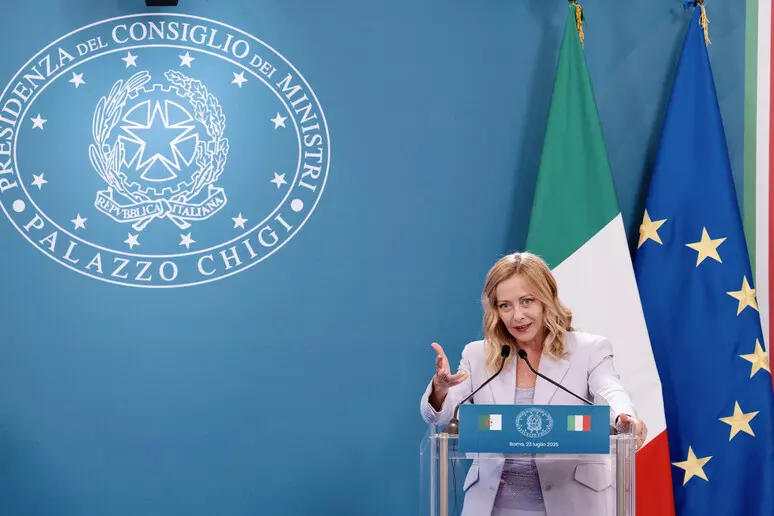For Italian-run migrant-processing centres in Albania with a ruling on Friday.The ECJ said it was legitimate for national governments to decide which countries of origin are safe via legislation, as Italy has done in a bid to overcome legal hurdles to implementing the agreement.But the court also stressed that this must “be subject to effective judicial review” and that a Member State may not include a country in the list of safe countries of origin “if that country does not offer adequate protection to its entire population”.In a statement, Meloni’s office said the decision was “surprising” and worrying.”Once again the jurisdiction, this time European, claims spaces that do not belong to it, in the face of responsibilities that are political,” the statement continued.”The EU Court of Justice has decided to hand over to any national court the decision not on individual cases, but on the part of migration policy relating to the regulation of returns and expulsions of irregular migrants.”So, for example, it makes the decision of the national judge for the identification of so-called safe countries, based also on private sources, prevail over the outcomes of complex investigations conducted by the ministries concerned and evaluated by a sovereign parliament.”It is a step that should worry everyone – including the political parties that are today celebrating the ruling – because it further reduces the already narrow margins of autonomy of governments and parliaments in the regulatory and administrative management of the migration phenomenon.”The Court’s decision weakens policies to counter mass illegal immigration and defend national borders.”It is singular that this comes a few months before the entry into force of the EU Pact on Immigration and Asylum, which contains stricter rules, including on the criteria for identifying those countries: a Pact that is the result of the joint work of the Commission, the Parliament and the Council of the European Union.”The Italian government will not stop seeking every possible solution, technical or regulatory, to protect the security of its citizens in the 10 months remaining until the European Pact starts functioning”.Italian judges refused to validate the detention of the first three groups of asylum seekers taken to Albania in October, November and January, referring their cases to the ECJ – which had established on October 4 that an applicant could not go through a fast-track procedure that could lead to their repatriation if their country of provenance was not deemed wholly safe.The countries of origin in the cases, Bangladesh and Egypt, were not judged to be wholly safe across their territory and for all categories of citizens.The government tried to get around this hurdle with a measure listing 19 safe countries for repatriation.They included both Bangladesh and Egypt.However, after the legislation was approved in December, Italian judges asked the ECJ which parameter should be used when determining safety and whether the principle of the primacy of EU law
should prevail if a conflict arises with Italian legislation.In its ruling on Friday, the ECJ added that a new
EU regulation, “which allows designations to be made with exceptions for such clearly identifiable
categories of persons, will be applicable as from 12 June 2026, but it is open to the EU legislature to bring that date forward”.

